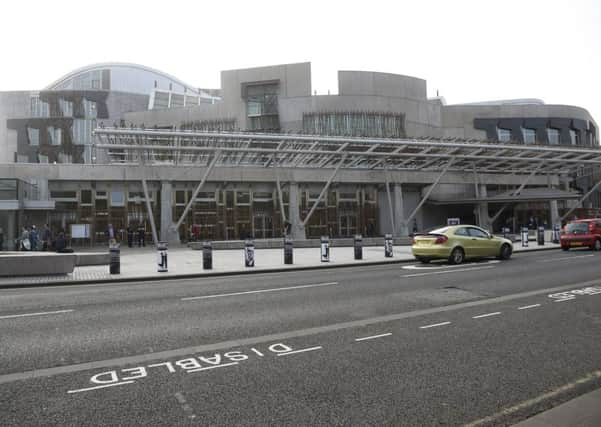James Macintyre: Time to cut back clutter of governmental constipation


The areas of government are: local authorities, the Scottish Parliament and the UK parliament.
When it comes to local authorities, we have 1,256 councillors in Scotland, who make practical decisions based on political exigencies. Local authority councillors should be excused from the decision-making process and authorities run instead by professional managers.
Advertisement
Hide AdAdvertisement
Hide AdThat’s because local authorities are now big business, and they should be run like a business, with managers who are accountable to the electorate.
Councillors would still play an important part in the democratic process – they would function as the eyes and ears of the council to ensure that local voices are heard, and that local problems are resolved.
We have 32 councils – one for every 165,000 of the population. If we exclude the major conurbations of Glasgow and Edinburgh, then the other councils average 130,000.
Clackmannan, with a population of 25,000 could be amalgamated with Stirling, which would provide a more efficient service.
Scotland could function with 16 councils, which, with a flatter structure, could give potential to save 20,000 local authority staff.
Pensions in the public sector are unaffordable – many are paid out of revenue, with the taxpayer footing the bill.
Apart from the local authorities there are other agencies which impact on the population in terms of the service provided, the major agencies being the National Health Service and Police Scotland.
The NHS has 14 health boards which with modern technology and logistics could be reduced to eight. They could also operate a centralised payroll system, with savings offset by severance payments and pensions.
Advertisement
Hide AdAdvertisement
Hide AdThe Chief Constable with 17,000 police has ten officers reporting to him, while the Commissioner of the Metropolitan Police has 31,000 police officers and five officers reporting to him.
London police seem to operate quite well.
Turning to the Scottish Parliament, it has 129 MSPs – one for every 40,000 of the population. The Westminster parliament has 639 – that’s one for every 100,000 of the population. The UK parliament has considerably more responsibilities than its Scottish counterpart, so a reduction to about 80 MSPs would seem logical.
The Scottish Government’s case is that the current number is required to cope with the additional devolved responsibilities.
A number of ongoing studies could result in the amalgamation of small constituencies to reduce the number of MSPs to 93. As more areas of responsibility are devolved, there is a case to reduce the number of MPs.
Streamlining the way we are governed will cut costs and enable decisions to be made faster with no real impact on accountability.
James Macintyre is a retired chartered accountant. He lives in Linlithgow, West Lothian.